All hail the modern-day conquistadors
Updated: 2016-02-10 15:21
By Dong Fangyu(China Daily)
|
||||||||
Spanish wine is set to come in second behind French wine in terms of foreign wine consumed in China last year, according to a study by Vinexpo and the International Wine and Spirit Research.
The report, issued at a news conference in Beijing last week previewing Vinexpo Hong Kong in May, found that Spain was the top performer in China last year in terms of the increase in sales.
The study, jointly published by Vinexpo, billed as the world's largest wine fair, and the International Wine and Spirit Research looked at the worldwide wine and spirits market. For 14 years IWSR has carried out the research for Vinexpo, with forecasts covering five years.
In 2014, 3.9 million cases of Spanish wine were consumed in China, behind Australian wines, holding second place with 4 million cases consumed, the study found.
French wines in general and Bordeaux in particular remained the most popular. French wines accounted for 42 percent of foreign wine consumption in China, with 13.9 million cases in 2014.
However, Spanish wines have established themselves as the cheapest mass-market wines, the study found. Spanish wine imports rose 55.6 percent between January and May last year compared with the corresponding period in 2014.
IWSR predicts that another low-cost, high-quality supplier that will continue to enjoy growth is Chile, 3.8 million cases of whose wines were sold in China in 2014.
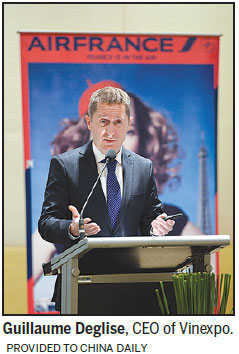
IWSR was founded in 1971 and is widely regarded as the world's largest and most trusted source for data on the global alcoholic beverage market.
Vinexpo, founded in 1981, will hold its fair in Hong Kong from May 24 to 26, which is expected to attract at least 1,300 international exhibitors from 34 wine-producing countries. Italy, will be Country of Honour at the upcoming Vinexpo Hong Kong with a showcase putting Italian production in the spotlight.
The fair alternates each year between Bordeaux and Hong Kong. The French edition last June drew 48,500 visitors from 151 countries including President Francois Hollande, who became the country's first president to open the show, Vinexpo says.
China was the fifth largest red wine market worldwide in 2014, and the world's largest spirits market.
The Vinexpo/IWSR report says the economic slowdown in China, the government's anti-corruption measures and the stock exchange collapse in August had affected China's wine consumption last year, a period in which Chinese consumed 131.9 million cases of red wine, 7.24 million cases fewer than in 2014.
However, it says consumption of imported wines was continuing to rise, as was the wine-drinking population, and that the lower end of the foreign wines market had recovered.
Consumption of Champagne has not been affected by the anti-corruption campaign because the market is still largely concentrated in first-tier cities, with little exposure to gifting and banquets, the report says.
Consumption of sparkling wines, which accounts for a very small percentage of wine consumption in China, is rising even more quickly than that of Champagne.
Italian sparkling wines are doing particularly well in second and third-tier cities, due to low pricing, the study says. Since sparkling wine still represents a very small percentage of wine consumption in China there is clearly room for growth in the future.
For domestic Chinese wine production, the report forecasts a continued but moderate increase up to 2019. "Wine production is being encouraged by the Chinese government, looking to encourage the population to switch from baijiu to wine, which has lower alcohol content."
Baijiu, the world's largest-selling spirit, is going through a transformation, the report says.
High-end baijiu was exposed to the anti-corruption campaign, resulting in a drop in sales, so prices have decreased. The category is growing mostly at the lower end, the report said, mostly in rural areas and third- and fourth-tier cities among males aged 40 and older. Conversely, young urban residents are opting for wine over baijiu.
(China Daily USA 02/10/2016 page5)
- General strike against pension reform brings Greece to standstill
- Madrid airport sounds alarm after bomb threat on Saudi plane
- Obama proposes new oil tax to fund clean transportation
- UN special envoy announces temporary pause of intra-Syrian talks
- Taliban kill 10-year-old hailed as militia hero
- Obama slams anti-Muslim rhetoric during first visit to US mosque
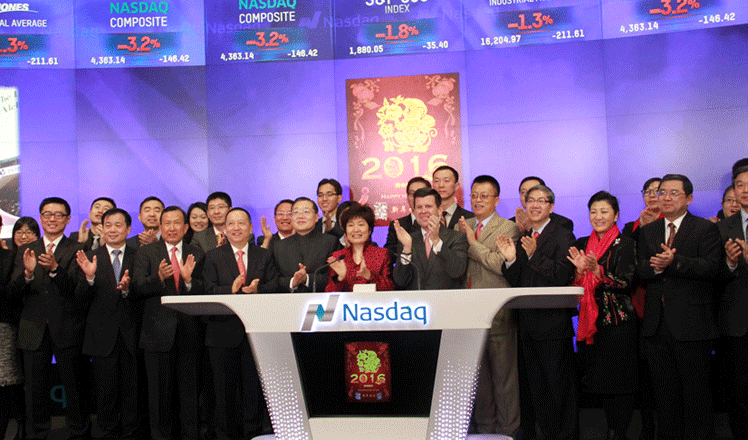
 Opening bell on Chinese New Year's Day
Opening bell on Chinese New Year's Day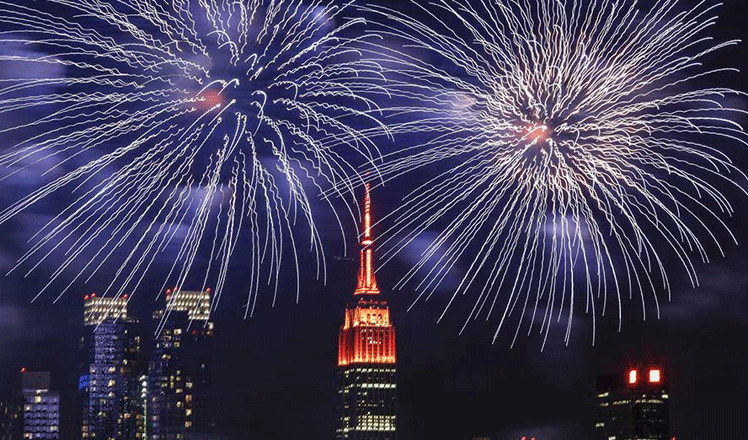
 The world celebrates Spring Festival with China
The world celebrates Spring Festival with China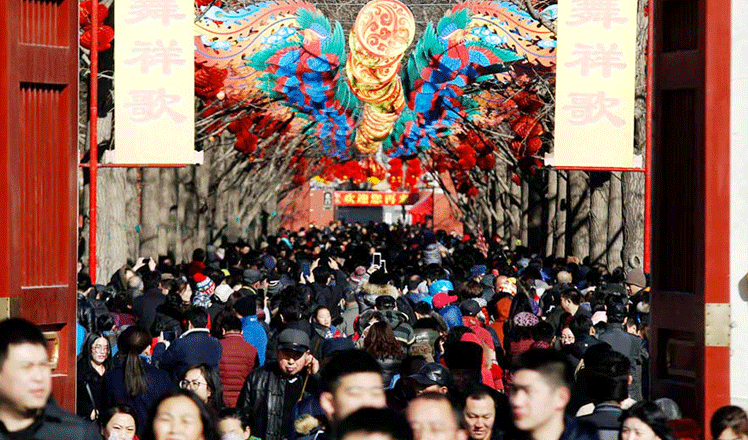
 Ditan Park temple fair embraces Chinese New Year
Ditan Park temple fair embraces Chinese New Year
 Xi Jinping grieves over Taiwan quake, vows aid
Xi Jinping grieves over Taiwan quake, vows aid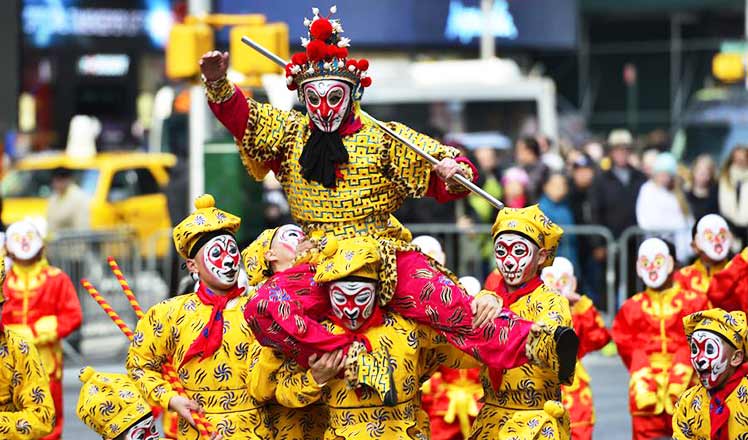
 Flash mob in monkey costumes appears in NYC to mark Chinese New Year
Flash mob in monkey costumes appears in NYC to mark Chinese New Year
 China's icebreaker 'Snow Dragon' reaches Ross Sea in Antarctica
China's icebreaker 'Snow Dragon' reaches Ross Sea in Antarctica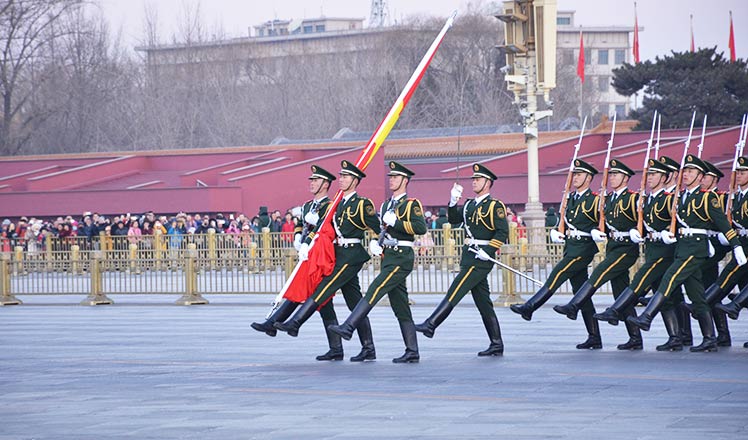
 Practice makes perfect for flag party on eve of Year of the Monkey
Practice makes perfect for flag party on eve of Year of the Monkey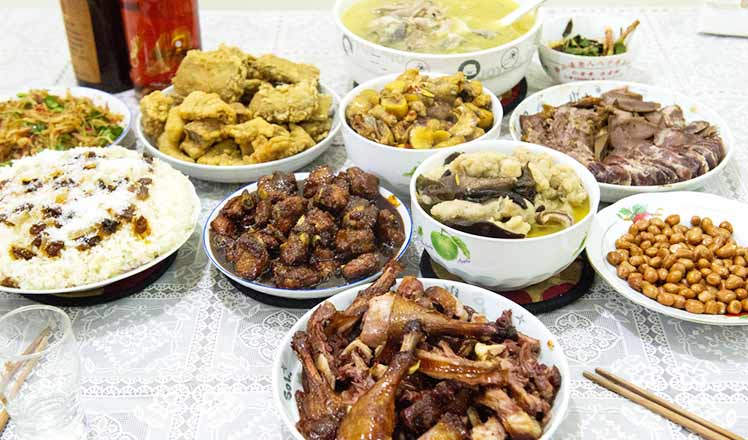
 Spring Festival Eve dinners around China
Spring Festival Eve dinners around China
Most Viewed
Editor's Picks

|

|

|

|

|

|
Today's Top News
National Art Museum showing 400 puppets in new exhibition
Finest Chinese porcelains expected to fetch over $28 million
Monkey portraits by Chinese ink painting masters
Beijing's movie fans in for new experience
Obama to deliver final State of the Union speech
Shooting rampage at US social services agency leaves 14 dead
Chinese bargain hunters are changing the retail game
Chinese president arrives in Turkey for G20 summit
US Weekly

|

|